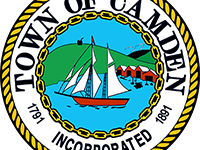Three of Maine's Community Colleges in groundbreaking cohort of high-quality, non-credit providers
Three of Maine’s community colleges are in the first cohort of New England colleges recognized by the New England Commission of Higher Education (NECHE) as providing high-quality non-credit programs.
The eight colleges in the cohort were recognized for their high-quality programming through a rigorous process of campus visits, interviews with students and employers, and data analysis.
“Maine’s community colleges have been providing high-quality, non-credit programs for years and we’re very proud and honored to have these colleges earn this recognition,” said David Daigler, president of the Maine Community College System (MCCS). “This is a rapidly expanding sector in higher education, and we look forward to breaking new ground with NECHE’s support.”
The inaugural cohort includes Kennebec Valley Community College, Southern Maine Community College, and York County Community College join Central Connecticut State University, New Britain, Conn.; Great Bay Community College, Portsmouth, N.H.; Massachusetts College of Pharmacy and Health Sciences, Boston, Mass.; New York University School of Professional Studies, New York City, N.Y.; and Per Scholas, Boston, Mass.
“We know that there are increasing number of students enrolled in non-credit programs. There has also been a growing need for quality assurance in this space. NECHE has taken the bold step to address this need, and we are excited to expand our work into this area,” NECHE Commission Chair Michaele Whelan said.
NECHE is a regional institutional accreditor that uses a peer-based evaluation process to ensure accredited schools meet and maintain standards of quality.
MCCS has significantly expanded statewide short-term workforce training programs, which are a mix of credit and non-credit offerings. These short-term programs take less than a year to complete and are generally free for students, and are coordinated by the system’s Harold Alfond Center for the Advancement of Maine’s Workforce. Since 2022, 45,000 people have enrolled in those programs, which are developed in collaboration with industry partners and focus on quickly and efficiently acquiring a particular skill – such as basic construction skills in 10 weeks, a three-week welding course with a weekly $500 stipend, or culinary boot camps.
“We look forward to expanding these practices, collaborating with our peer colleges, and finding the best practices to serve our students, no matter where they are in their academic journey,” said Daigler.
MCCS is on track to train more than 100,000 short-term workforce training students by 2030, the result of a historic five-year grant from the Harold Alfond Foundation. Graduates of the short-term program are eligible for scholarships toward a degree or certificate program.
Maine’s seven community colleges are the smart and affordable choice for lifelong learning in Maine, with the lowest tuition and fees in New England. The colleges serve more than 33,000 people a year, through two-year associate degree and one-year certificate programs, short-term workforce training, early college programs, advanced certificates, and other learning opportunities.



























